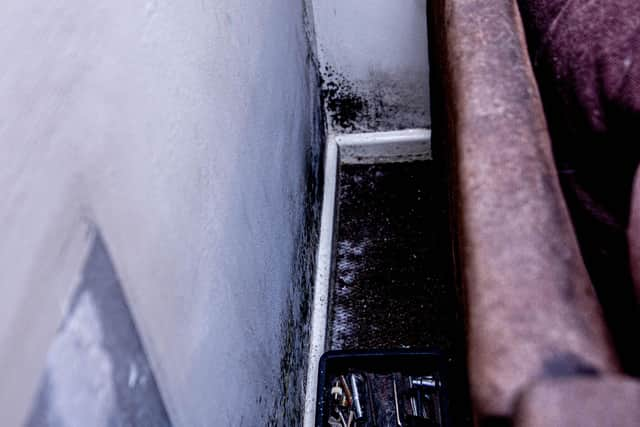Cost of living crisis: Rising energy prices and lack of insulation are forcing private renters to live in damp homes says Citizens Advice
and live on Freeview channel 276
Some 2.7m households are struggling with the poor living conditions brought on by a combination of high energy bills and a lack of insulation, the charity found.
The News has recently reported cases of privately rented homes plagued by mould, including Windsor House in Canal Walk, where residents spoke of water flowing down walls and ceilings collapsing due to damp. The building’s owner was contacted for comment.
Advertisement
Hide AdAdvertisement
Hide AdThe problem is especially bad in the least energy efficient homes, with private tenants being 73 per cent more likely to be living with damp if they are in a property with an Energy Performance Certificate (EPC) rating of D-G rather than A-C.


Tenants are 89 per cent more likely to experience excessive cold in a D-G rated property than one rated A-C.
Tenants in the private rental sector are some of the worst affected by the cost-of-living crisis and are paying for poor insulation, Citizens Advice warned.
The average private sector tenant in England is paying £350 more a year on heating because of poorly insulated and damp homes, while those in the least efficient properties are paying an extra £950, it calculated.
Advertisement
Hide AdAdvertisement
Hide AdWith energy bills set to rise again in April, those in the least efficient homes could pay a ‘terrifying’ £1,190 more a year to keep warm.
Some 40 per cent of renters said they had felt stressed as a result of damp, mould and excessive cold, with 36 per cent saying it made them feel anxious.
Citizens Advice is calling on the government to bring regulation of the private rental sector in line with social housing by following the lead set by ‘Awaab’s Law’, a newly announced government proposal which will place strict, legally binding timelines on social landlords to deal with serious issues such as damp and mould. Two-year-old Awaab Ishak died in December 2020 from a respiratory condition caused by mould at his home in Rochdale, Greater Manchester.
Citizens Advice also urged the government to follow through on its promise to make sure all private rental properties are upgraded to a minimum EPC C by 2025. Landlords are currently required only to bring their properties up to an E rating and currently do not have to make any improvements costing more than £3,500 – a cap which Citizens Advice said needed to be increased to £10,000.
Advertisement
Hide AdAdvertisement
Hide AdGillian Cooper, head of energy policy at Citizens Advice, said: ‘Every week we hear stories of people living in cold, damp and mouldy properties they can’t afford to heat properly.
‘It’s shameful that more than 20 years since legislation came into force to reduce fuel poverty and improve the energy performance of homes, people are still suffering. Improving energy efficiency in privately rented homes has never been more urgent. It’s the step needed to keep people’s essential bills low, while also helping to protect their mental and physical health.’
Yonder surveyed 2,000 private renters aged 18 and over in the UK between January 23-31.